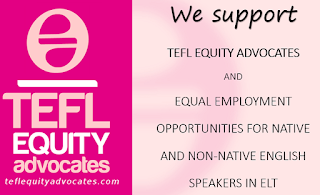Earlier in 2017 we brought you tips on learning vocabulary. Now, to help you enjoy/survive Christmas, we present ELA-Edinburgh's top Christmas vocabulary.
Re-gift
Have you ever received a Christmas present you didn't enjoy? Did you think about giving that same present to somebody else? This is re-gifting and, for many people, it is not socially acceptable.
Hogmanay /hɒɡməneɪ/
Don't come to Scotland without knowing about Hogmanay. It's our name for December 31st and all the celebrations that go with it. We take Hogmanay take very seriously. The rest of the UK goes back to work on January 2nd but not in Scotland. We need an extra day to recover.
Stocking Stuffers
In the UK, most children receive a stocking full of relatively small presents. Stocking stuffer has become a synonym for small, inexpensive presents that can fit into the stocking. But remember, even stocking stuffers can't be re-gifted!
Scrooge
Scrooge is one of the most famous characters from Charles Dickens, the author that had such a huge influence on British Christmas traditions. It's such a powerful character that to be called 'a scrooge' is a big insult. Scrooges are mean, miserable and don't enjoy Christmas.
Togetherness
The opposite of scrooge in many ways. Togetherness is the feeling of community and family that many people in the UK feel around Christmas. For lots of British people, it's a time when being together with friends and family is especially important.
Happy Christmas from all the team at ELA-Edinburgh!
Friday 22 December 2017
Monday 18 December 2017
The Schwa
Following on from our pronunciation guide, we bring you the most common sound in English: the schwa. The only sound in English with its own name, you will find the schwa in many, many words.
What is it?
The schwa is an unstressed vowel sound. This means that if a vowel is not stressed, it is probably pronounced as a schwa sound. You can listen to the schwa here.
Can you show me an example?
Say the word 'vegetable' to yourself. And again. This is one of the most mispronounced words in English because learners want to pronounce every vowel. However in 'vegetable' the second 'e' and the 'a' are schwas, the only vowel that is fully pronounced is the first 'e'.
Why is this important?
Remember that, unlike many languages, English doesn't respect its vowel sounds. English speakers are lazy! We reduce, or just leave out, a lot of vowel sounds. This is why the schwa is so important. If you don't respect the schwa, you will mispronounce many words and your English will not sound as natural as it could!
What is it?
The schwa is an unstressed vowel sound. This means that if a vowel is not stressed, it is probably pronounced as a schwa sound. You can listen to the schwa here.
Can you show me an example?
Say the word 'vegetable' to yourself. And again. This is one of the most mispronounced words in English because learners want to pronounce every vowel. However in 'vegetable' the second 'e' and the 'a' are schwas, the only vowel that is fully pronounced is the first 'e'.
Why is this important?
Remember that, unlike many languages, English doesn't respect its vowel sounds. English speakers are lazy! We reduce, or just leave out, a lot of vowel sounds. This is why the schwa is so important. If you don't respect the schwa, you will mispronounce many words and your English will not sound as natural as it could!
Saturday 2 December 2017
Supporting Equal Opportunities in English Language Teaching
In the English as a Foreign Language education sector, the most common cause for concern, is the
unfair policy towards non-native speakers
as English language teachers.
In English language teaching, many would probably agree, that there are great advantages to employing both native and non-native English speakers; both bring strengths to the classroom. Native speakers are normally great sources of vocabulary, whilst non-native teachers often have a stronger grasp of grammar, than a newly qualified native speaker.
Ultimately, these pros and cons cancel each other out, and all we are left with is the individual qualities and characteristics of the teachers. This is what can truly make a difference a students learning experience, what really matters is the connection they developed with a teacher; one who exudes a genuine interest and passion for their work, over the source of their English skills.
On reaching this conclusion, a school might find conflict with clients or parents who have strong views on what is best for them, and their children. From personal experience at private language schools, it has been the clients who were most resistant to non-native teachers, as there is an assumption in many countries that native is best.
Perhaps, when put in this position, it is the duty of the school to remain in support of their non-native colleagues and it is the prerogative of an organisation to employ those they deem most suitable for the job. After-all, there is an implied and automatic trust on behalf of the client, in the school's judgement to employ the best and most appropriate teaching staff.
For schools seeking accreditation, priorities are unfailingly awarded to qualifications over the origin of a teachers mother tongue, by accreditors or government bodies.
At our Academy, we uphold equal opportunities among our teaching staff and are lucky to have a supportive mix of native and non-native teachers, which adds balance and value to our team. We are proud to be an equal opportunities employer, and this is something we will continue to promote through our place in the industry.
ELA-Edinburgh is a supporter of TEFL Equity Advocates. Set up in 2014 to speak out for equal professional opportunities in ELT. The organisation campaigns to encourage schools and organisations to establish supportive and fair employment policies.
Learn more - TEFL Equity Advocates
info@elacademy.co.uk +44 (0)131 226 6182
Subscribe to:
Posts (Atom)




